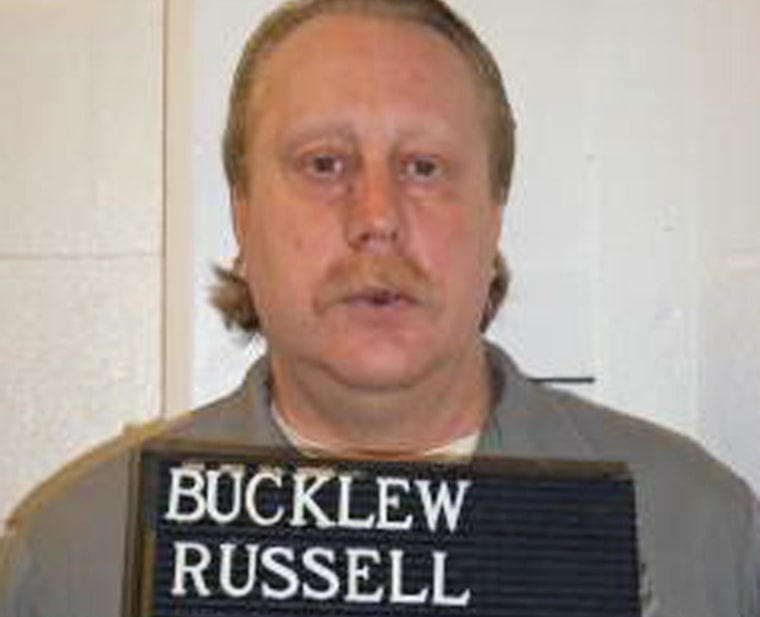The next U.S. prisoner scheduled for execution is trying to force Missouri prison officials to let a videographer record his lethal injection — which he says will be torture because of a birth defect.
Russell Bucklew's lawyers filed a motion in federal court Friday arguing a visual record of Wednesday's execution should be considered evidence in his civil rights lawsuit against the state.
“If Missouri officials are confident enough to execute Russell Bucklew, they should be confident enough to videotape it," his lawyer, Cheryl Pilate, said in a statement.
"It is time to raise the curtain on lethal injections."
The Missouri Attorney General's office said Bucklew has no constitutional right to "create" evidence.
"And the potential impact on the criminal justice system — including the real potential that private parties videotaping executions could lead us back to the days of executions as public spectacles — counsel against creating such a right," the state said in court papers.
Bucklew, 45, is set to be the first inmate put to death since the bungled April 29 execution of Clayton Lockett in Oklahoma.
The convicted killer — dubbed a "homicidal Energizer bunny" by one prosecutor — has a congenital defect that causes malformed vessels to form in his head, face and throat, leading to hemorrhages, his lawyers say.
They contend the large masses could block Missouri's execution drug, pentobarbital, from circulating properly, causing excruciating pain in violation of the constitutional protection against cruel and unusual punishment.
When Lockett was executed, with a three-drug cocktail, a vein collapse stopped some of the chemicals from getting into his bloodstream, prison officials have said.
He appeared to regain consciousness and writhe in pain — a gruesome scene that was denounced by the White House and sparked a top-level review of how states kill death-row prisoners.
Recordings of execution are exceedingly rare, although the 2011 lethal injection of Andrew DeYoung was videotaped at the request of another death-row inmate challenging Georgia's protocol.
Fordham Law Professor Deborah Denno, who has studied execution methods, said one argument against a video is that the images could be leaked to the general public.
"It's time to raise the curtain on lethal injections."
The idea of recording an execution also runs counter to the secrecy that shrouds the process in many states. She noted that in Lockett's case, his executioners closed the curtain to the death chamber as soon as things went wrong so the witnesses could not see what was happening.
Many states are fighting hard to keep the names of their execution drug-suppliers — often controversial compounding pharmacies — under wraps.
In court papers, Bucklew has argued that Missouri's refusal to disclose where it got its drugs, combined with his unusual medical condition, make lethal injection too risky.
Bucklew was sentenced to death for the 1996 shooting death of Michael Sanders, who had given refuge to his abused ex-girlfriend. He also kidnapped and raped the ex-girlfriend and shot at a police officer.
Sanders' parents declined to comment on the case.
Richard Dieter, executive director of the Death Penalty Information Center, which opposes capital punishment, said video could be an important objective tool to evaluate executions.
"I think the lethal injection needs to be examined much more closely and this would be good material evidence," he said. "Doctors would view. Judges would view it. We need to have this debate. We need to know. You need some expert eyes on this."
